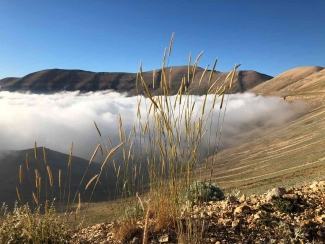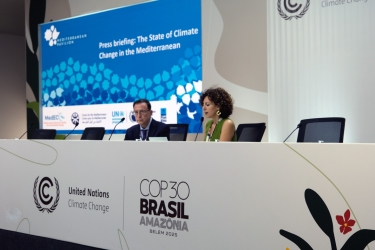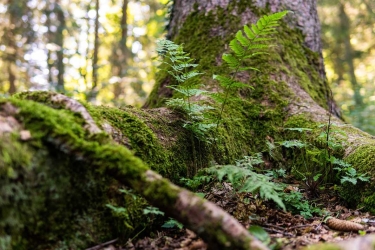VI Mediterranean Forest Week highlights forests’ key role for a sustainable future

The VI Mediterranean Forest Week showcased the use of forest–based solutions to address climate change, as well as broader regional challenges such as sustainable development, energy transition and demographic change. The event welcomed hundreds of researchers, policy-makers and other relevant stakeholders from the wide Mediterranean basin to Brummana, Lebanon from 1-5 April 2019.
Discussions focussed on the role of Mediterranean forests in achieving nationally determined contributions (NDC) targets under the Paris Agreement. In this context, a packed programme explored existing links between forests and other sectors (water, cities and biodiversity), forest communication, socio-ecological resilience of forests and much more.
EFIMED's contribution
As a member of the organising committee, EFIMED organised two sessions. The first was a plenary on participatory approaches for linking non-wood forest products with the economy. Experts from both the Northern and Southern Mediterranean regions participated in a round-table discussion to present inspiring examples of social entrepreneurship, participatory approaches and land restoration concerning non-wood forest products. Cases presented ranged from edible plants in the UK, Lebanon and Tunisia, to truffles and rural development in Spain and Iran. The Innovation Networks of Cork, Resins and Edibles in the Mediterranean Basin (INCREDIBLE) project was presented as an opportunity for Mediterranean actors to join forces and minds to develop the full potential of non-wood forest products in this region.
In a parallel session organised by the Social Innovation in Marginalised Rural Areas (SIMRA) project, participants explored the different hindering and supportive elements for social innovation to thrive in the Mediterranean. Social innovation initiatives in forestry in the region include wildfire management, land banking, NWFP valorisation, and forest health.
To ground the week’s discussions in the Mediterranean landscape, the Lebanese Ministry of Agriculture organised a field trip to the country’s first nature reserve, Horch Ehden. There, cedar forests of outstanding beauty host rich biodiversity on the upper north-western slopes of Mount Lebanon.
The Brummana Declaration
Following the events in Lebanon, the Brummana Declaration was approved on 18 April 2019. The Declaration furthers the discussion from the State of Mediterranean Forests 2018 about how Mediterranean forests can help countries fulfil their NDCs under the Paris Agreement. Mediterranean countries should take specific, recommended actions that: 1) reinforce knowledge and experience sharing on forest and landscape restoration approaches; 2) support forestry education programmes and incentivise youth participation in forest projects; 3) mobilise climate financing; and 4) synergise forest monitoring and reporting systems.
Building on the foundation of existing international agreements, frameworks, and country commitments, the Declaration calls for action from local, national, and international political and administrative authorities, and encourages the engagement of all stakeholders involved in the management of forest ecosystems. In this way, actors at all levels can work towards addressing the environmental, economic and social challenges faced by Mediterranean countries for a sustainable future, with Mediterranean forests fulfilling the potential they have to contribute to this goal.


